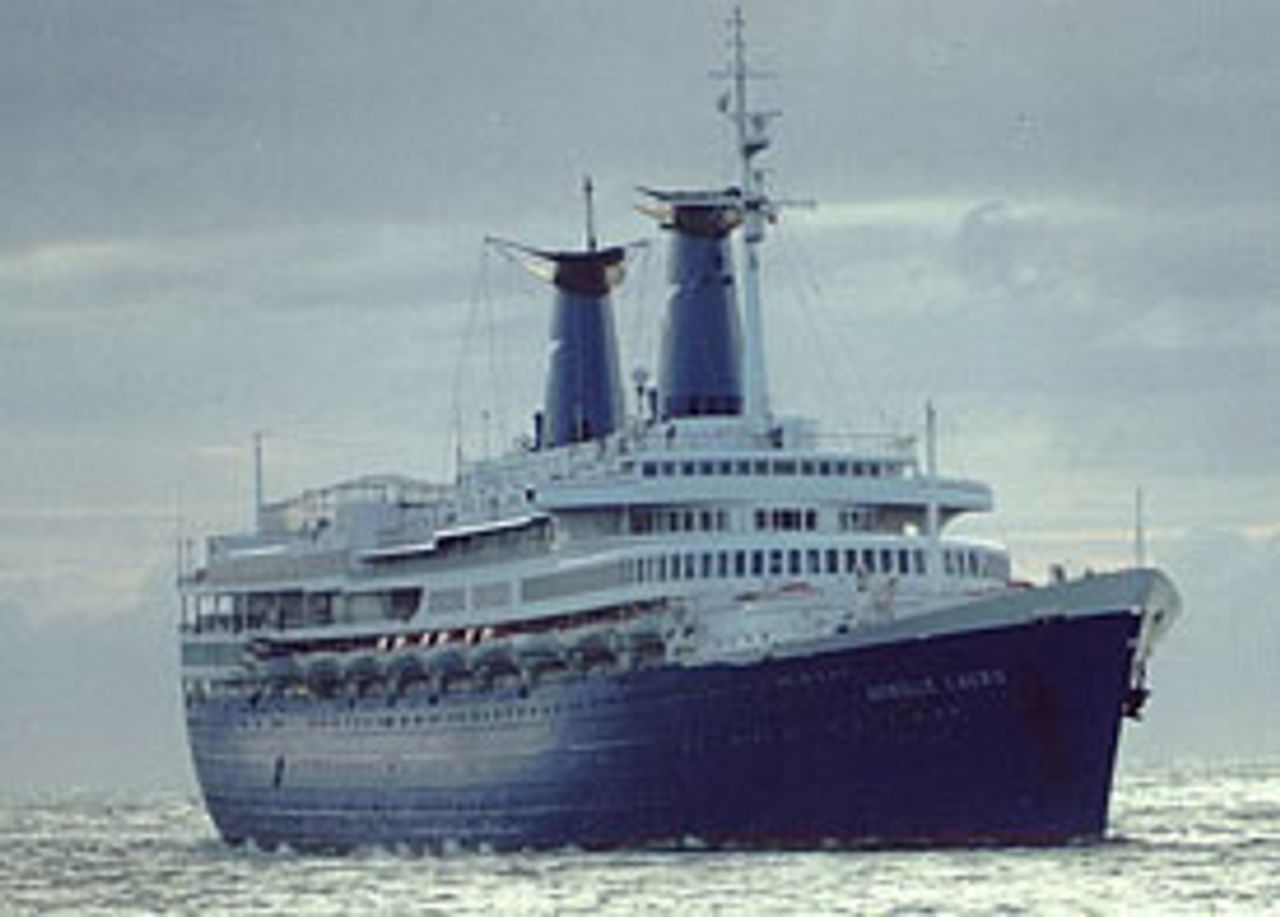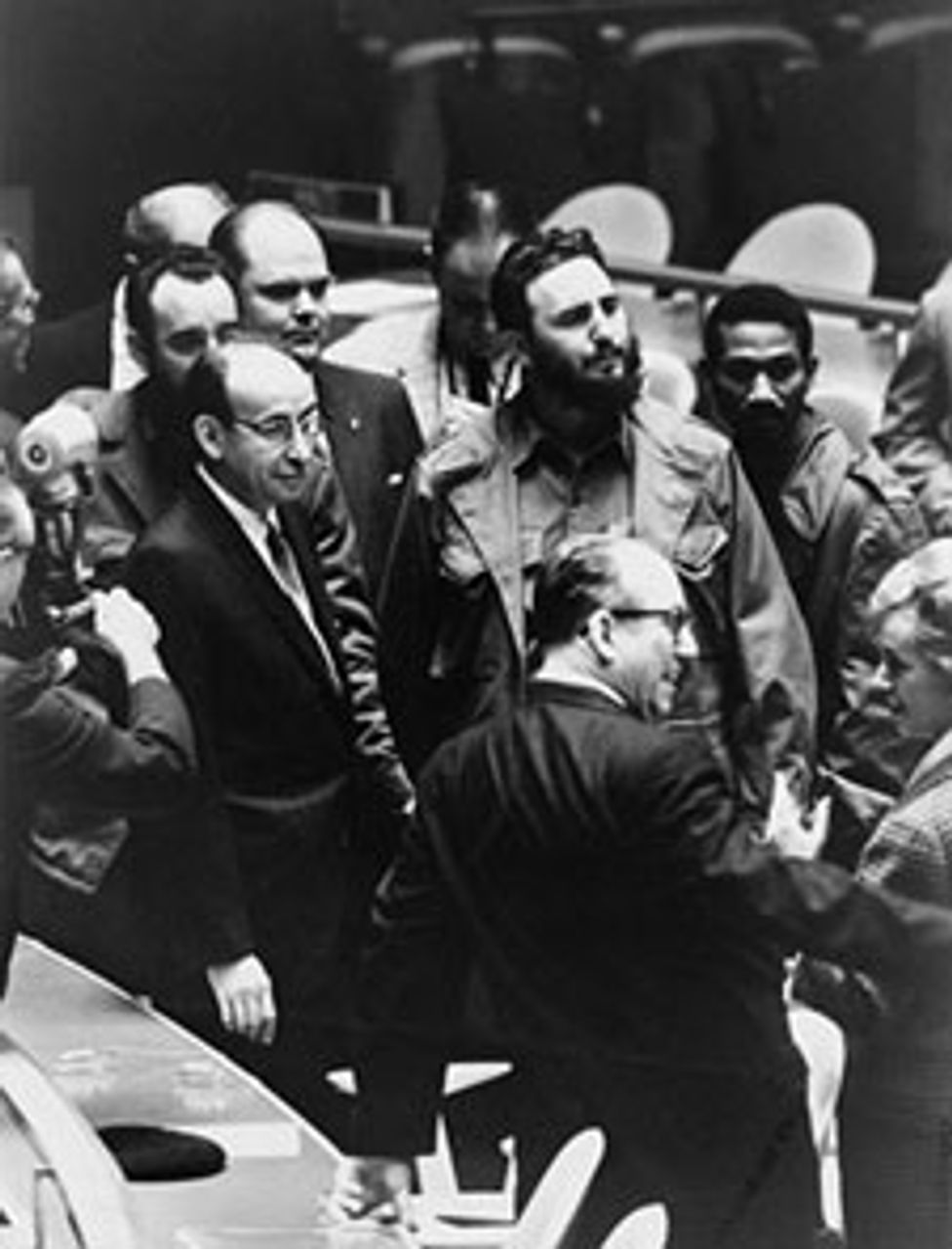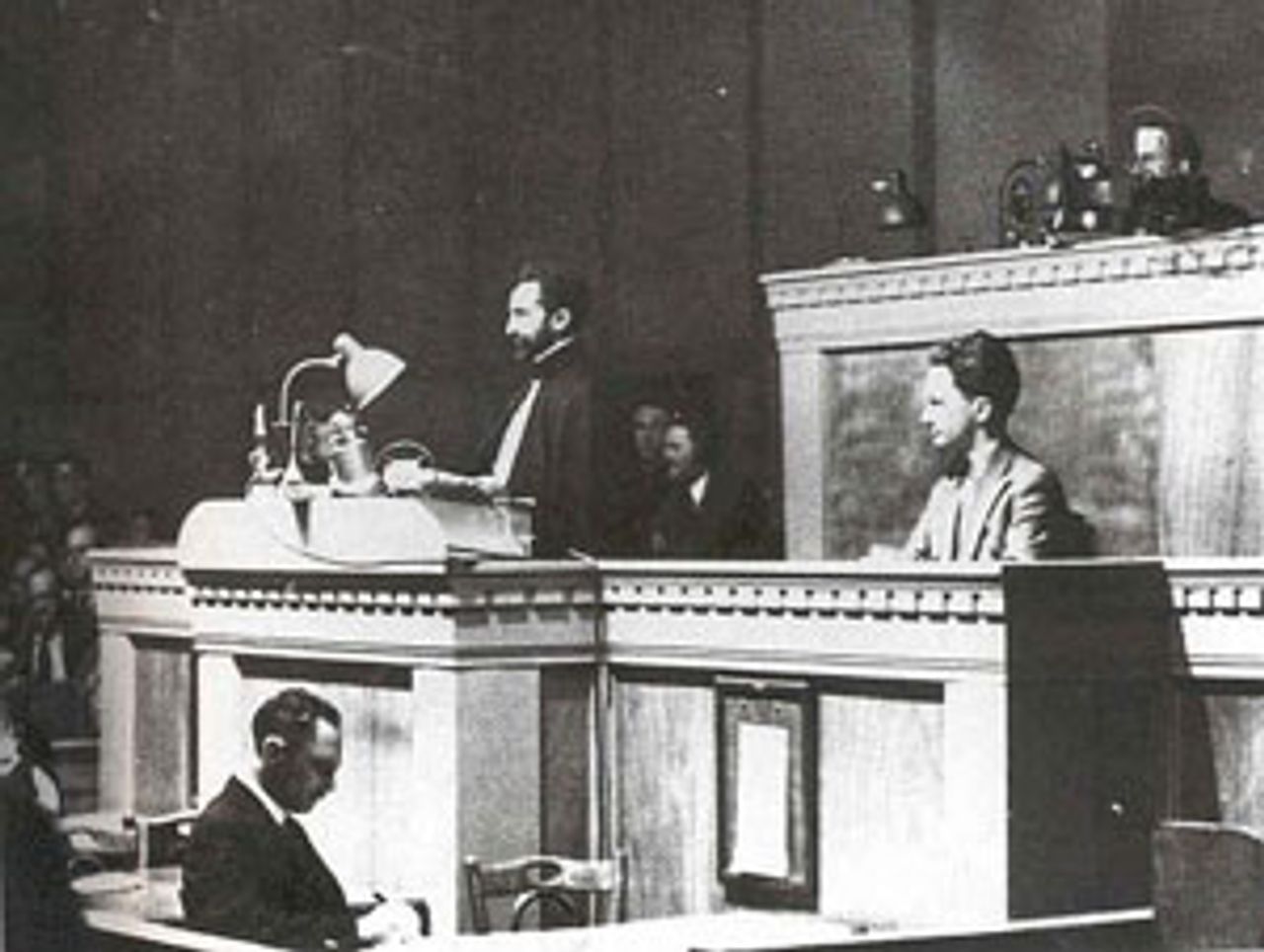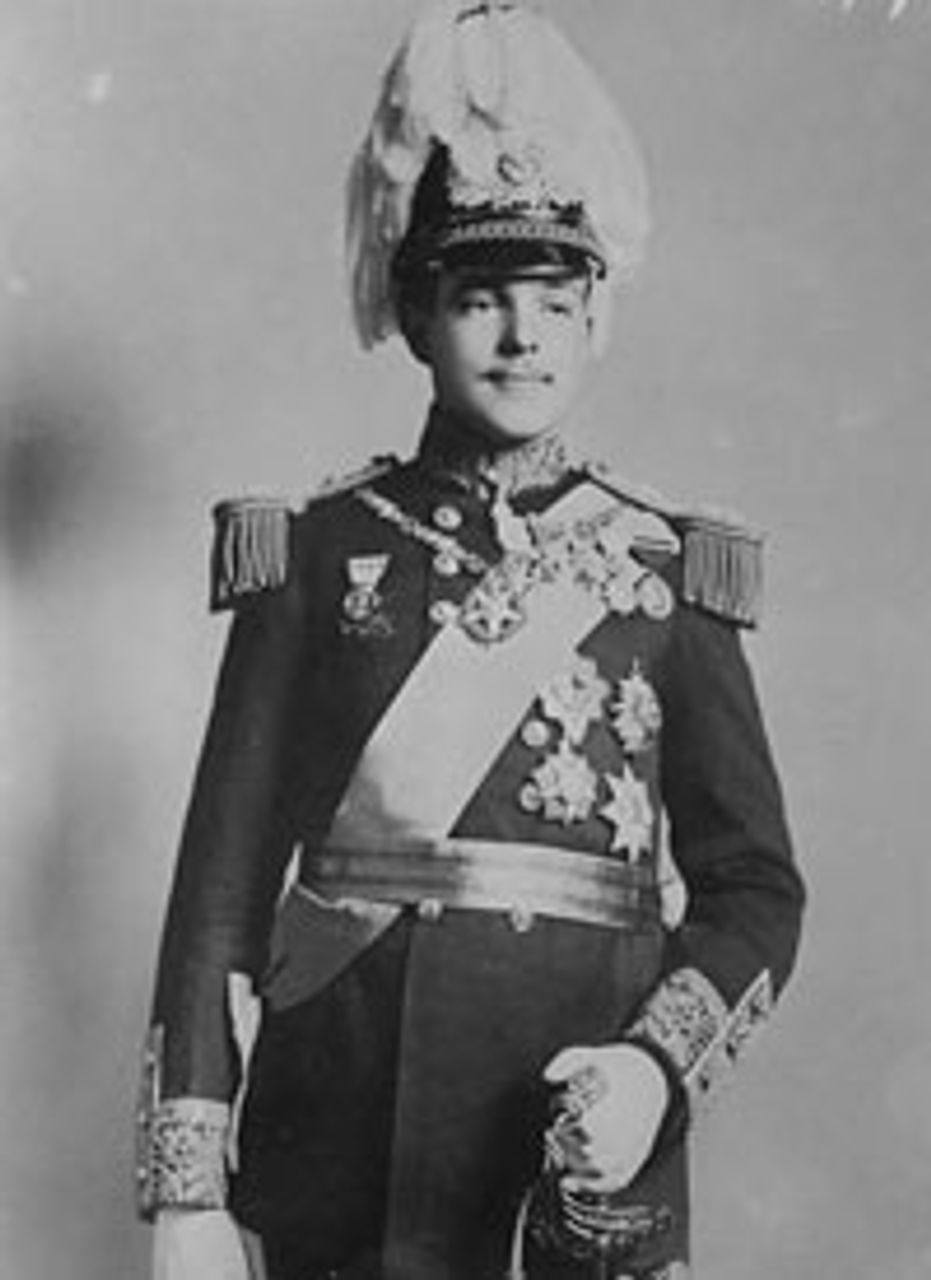This Week in History provides brief synopses of important historical events whose anniversaries fall this week.
25 Years Ago | 50 Years Ago | 75 Years Ago | 100 Years Ago
25 years ago: Italy, US standoff over Achille Lauro hijacking
 Achille Lauro
Achille LauroFour member of the Palestinian Liberation Front (PLF), hijacked an Italian cruise ship, the Achille Lauro, on October 7, 1985, as it traveled between the Egyptian ports of Alexandria and Port Said. Aboard were 344 passengers and 201 crew members.
The militants directed the ship to Tartus, Syria, demanding the release of 50 Palestinians held in Israeli prisons in exchange for release of the passengers on the cruise ship. After Syria refused their entry, they executed a wheelchair-bound Jewish American on board, 69-year-old Leon Klinghoffer, and threw his body overboard.
After returning to Port Said, the hijackers agreed to abandon the boat in exchange for safe passage aboard an Egyptian airliner bound for Tunisia. The agreement was negotiated among Italy, Egypt, and the Palestinian Liberation Organization (PLO), which sent Yasser Arafat’s personal envoy Hani El Hassan with PLA leader Abu Abbas to disarm the situation. However, the October 10 flight was intercepted by US fighter jets en route and forced to land at a US Navy base in Sicily.
There a tense standoff ensued between Italy and the US over who should control the plane. Italian military initially surrounded the Boeing 737, but a squad of the US Delta Force soon arrived unannounced and, weapons drawn, surrounded the Italian security personnel and demanded control over the scene. The Delta Force soldiers were then themselves surrounded by Italian paramilitary Carabinieri. The dispute—the nadir of postwar US-Italian relations—was resolved five hours later in the middle of the night after direct phone calls between the Reagan White House and Italian Prime Minister Bettino Craxi, with the US agreeing to relinquish control of the hijackers and Abbas to Italy.
The US held that Abbas had masterminded the plot, but the Craxi government insisted he had been a mediator and beyond that, he held a Tunisian diplomatic credentials. The four hijackers were arrested, but Abbas was allowed to leave Italy on a Yugoslav flight.
50 years ago: UN General Assembly reveals tensions between US, USSR and “nonaligned”
 Castro at UN
Castro at UNThe United Nations General Assembly, held in New York City between September 15 and October 11, revealed sharp tensions among and within the West, the Soviet bloc, and the non-aligned nations.
The gathering was dominated by sharply deteriorating US-Soviet relations fraught in recent months by nuclear arms disputes and the U-2 controversy, in which a downed US aircraft was exposed as spy plane after initial attempts at a US cover-up. Eisenhower and Khrushchev did not meet during the gathering.
Leaders of the top non-aligned powers, Nasser of the United Arab Republic (Egypt and Syria), Nehru of India, and Tito of Yugoslavia, sought to bolster the UN and publicly advocated for a meeting between Eisenhower and Khrushchev, but the US blocked the move.
The Soviet Union and other states called for the admittance of the People’s Republic of China to the UN—Taiwan then retaining the Chinese seat on the Security Council—but the US successfully blocked a vote. However, the Soviet Union was at the same time moving against China, concluding a deal in early October with Nehru for the implementation of modern communications in its northern regions along the border where India and China were coming into conflict.
On the floor of the General Assembly, the desk of the Congo sat empty. The democratically elected prime minister, Patrice Lumumba, was under house arrest in Leopoldville, a detention carried out with the backing of the CIA.
Fidel Castro, a year after his nationalist forces supplanted the US puppet Batista regime in Cuba, delivered a four-and-one-half hour speech in which he warned of US aggression. Behind the scenes he rebuffed entreaties to join with the nonaligned, signaling Cuba’s embrace of the Soviet Union.
The gathering ended in tumultuous fashion, when Khrushchev allegedly interrupted the anti-communist speech of the Filipino delegate by banging his shoe on his desk. The heated exchange carried on until Assembly President Frederick Boland of Ireland banged—and shattered—the gavel to conclude the assembly.
75 years ago: League of Nations finds Italy guilty of war
 Ethiopian Emperor Haile Selassie addressing the
Ethiopian Emperor Haile Selassie addressing theLeague of Nations
On October 7, 1935, the League of Nations declared the government of Italy to be guilty of launching a war of aggression against Ethiopia. The League declared that the invasion of Ethiopia, begun October 3, was carried out “in disregard of its covenants under article XII of the covenant of the League of Nations.” It was “an act of war against all other members of the League.”
The meeting on Italy's invasion was the first in the League's history to invoke Article XVI of the League covenant. Ethiopia's representative called for economic and military sanctions under Article XVI to be implemented, demanding the League of Nations “declare that treaties must be respected, that the pledged word must be kept, that wars of aggression be outlawed, that force must give way to justice.”
Ultimately, no sanctions were imposed that could actually end Italy's war drive and not all of the League's member countries chose to uphold the sanctions that were approved. This was in line with the League's handling of the Italian-Ethiopian conflict from the beginning.
Italy had been escalating its military presence on Ethiopia's border throughout 1935, threatening the independent African nation with invasion. Fully aware of Fascist Italian Premier Benito Mussolini's intentions, the other European imperialist powers made an effort to stay out of his way as much as possible. In August, the League reached an agreement during three-party discussions between Italy, France and Britain which essentially gave Mussolini license to do as he pleased in the region. France and Britain sought to avoid spoiling relations with Italy because they still wished to gain Italy as an ally against the growing threat posed by Adolf Hitler in Germany. These governments, which had their own colonial conquests throughout Africa, were more than willing to sacrifice Ethiopia in the process.
100 years ago: Revolution topples Portugal’s monarch
 King Manuel of Portugal
King Manuel of PortugalOn October 4, 1910, a revolt of the republican political movement in Portugal forced King Manuel to flee Lisbon, putting to an end the dynasty of the House of Braganza that had ruled the Iberian nation almost uninterruptedly since 1640. The next day the First Republic of Portugal was declared.
Protests began on October 1, coinciding with the state visit of Brazilian president Hermes da Fonseca. By the next day, the Portuguese Navy was in mutiny, and on October 3, the army refused the crown’s order to put down the naval rebellion, effectively swinging its forces behind the republicans. On October 4, two warships began to lob shells at the royal palace, forcing the royal family to evacuate to Great Britain. On October 5, the republican government was formed under playwright Teofilo Braga.
Behind the demise of monarchy in Portugal lay a profound economic crisis and the emergence of the working class. Portugal, once a significant colonial power, had long since been reduced to a state of dependency on Britain. It had twice been forced to declare bankruptcy in the preceding 20 years (in 1892 and 1902), putting it entirely at the mercy of international financial concerns. Strikes and social unrest intensified as a result.
The attempts of Carlos I, Manuel’s father, failed to resolve the crisis through repression with the appointment of João Franco, the anti-democratic prime minister. In 1908, Carlos I was assassinated, together with his heir Luís Felipe, Manuel’s older brother, and Franco was soon supplanted.
